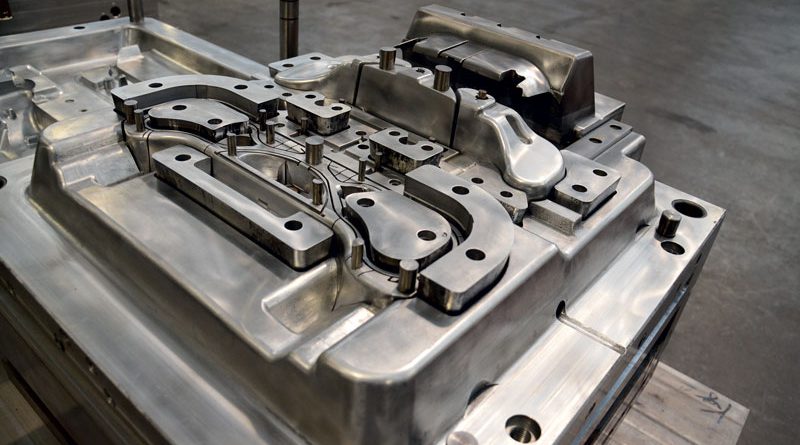New Alloys for Aluminium Moulds
Aluminium can profitably replace steel to manufacture moulds for plastic materials. The offering of alloys featuring high strength and machinability, specific for this application, is on the increase. The Soluminium conference introduced the most recent innovations
by Alberto Pomari
Soluminium is the new and original name created by Tau Metalli in partnership with Aleris Rolled Products (one of the world leader in the production of rolled aluminium goods for the industry) and Model Stampi, a company specialized in the production of medium-sized and large moulds for plastic materials. The title of the Soluminium Moulding Convention underlines the theme of the congress held on October 29th, dedicated to the new light alloys created for sophisticated applications such as the construction of moulds for the casting of thermoplastic materials and techno-polymers. We imagine that the new brand will be used in future meetings and conventions. Actually the result of the meeting was truly remarkable: more than one hundred attentive spectators and a perfect organization of the event, in the representative congress hall of the Tau Metalli headquarters in Travagliato (near
Brescia). Several presentations by expert speakers described new alloys and applications, often comparing the light metal to steel for the manufacturing of moulds.
Tau Metalli’s CEO, Giulio Vignoni, introduced the study day and the various presentations. The first was the speech by Manuel Pioletti, Sales Manager, Tau Metalli, who introduced the company its most significant strengths, the materials and services offered to clients.
ALERIS HOKOTOL® and WELDURAL® alloys
Aldo Rotta, Managing director of PLAST DESIGN, initially focused on techno-polymers, their properties and the advantages of these materials. Aluminium moulds make it possible to obtain techno-polymers in complex forms and with an excellent surface quality. The cost of aluminium is higher than that of steel, but its weight is roughly one-third of that of steel for tools, it allows faster surface treatments and for this reason it cuts down on manufacturing times and simplifies the handling of items in the workshop. Besides, aluminium disperses heat much faster than steel, therefore moulding cycles may be significantly reduced.
The following presentation by Dennis Aust, Technical Development Engineer at Aleris, illustrated the strengths of Aleris Rolled Products and showed, even by means of interesting videos, the process of production of aluminium platens and sheets. Specifically, the properties of the HOKOTOL® and WELDURAL® alloys were described; on account of their high strength and excellent machinability they are particularly suitable for the realization of moulds for rubber and plastic (A&L will talk about these alloys again shortly).
Advantages of aluminium moulds
The third speech, by technician Sergio Bernardi, further clarified the differences between aluminium and steel moulds, pointing out the reasons behind the use of either material depending on the use of the mould. The pre- sentation by Franco Cuzziol from Model Stampi analysed in depth the use of different aluminium alloys for moulds meant for the production of great quantities, underlining the productivity improvement in the casting of large lots of components, a particularly frequent requirement in the segments linked to the appliances, medical, furnishings and automotive industries.
A highly significant memoir was presented by Mirella Sala, Pel Plastic, regarding the advantages of aluminium for surface finishings which may be obtained on finished products: the great depths which may be reached, optimization of times and costs of use of the mixed technology, use of technical textures and easy repair of the surface in case of damages. Surface treatments ensure hardening of the surface, increase in smoothness and improvement of the release of components from the moulds. Last but not least, the interesting presentation by Giuliano Rivi, owner of the Group which bears his name, who summarized both the advantages of RIVI technologies for the injection moulding of products with absolutely remarkable dynamic-mechanical, technical-physical and aesthetic properties and the aluminium alloy hardening systems by means of the GHA anodic oxidation technology. The effects are the reduction of the moulding times, the possibility of using presses with lower tonnage, the reduction of the injection points of plastic material, the improvement of the energy efficiency of the process and more. Two case histories, a shopping cart almost entirely made out of polymers and a pallet, produced in large numbers some years ago, completed the report.
Finally the conclusion of the day, in the setting of a famous winery in Franciacorta, showered all participants with bubbles: a truly effervescent day!

